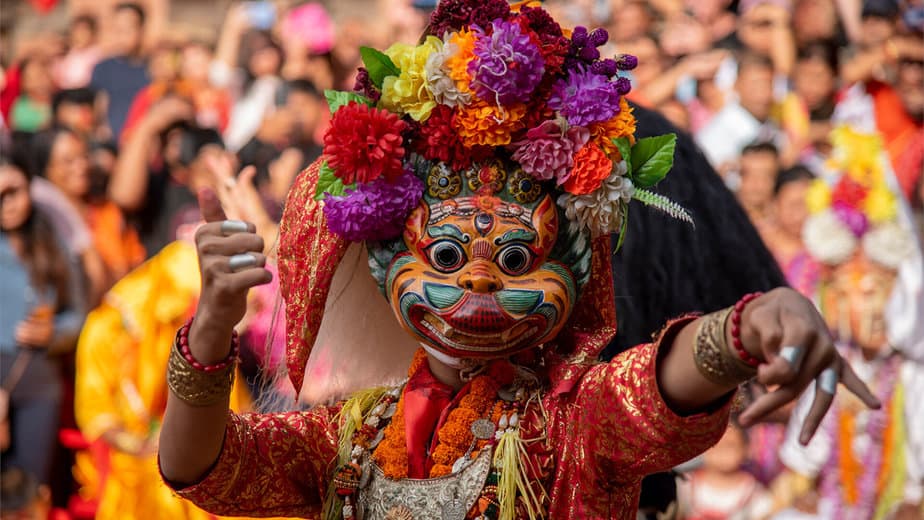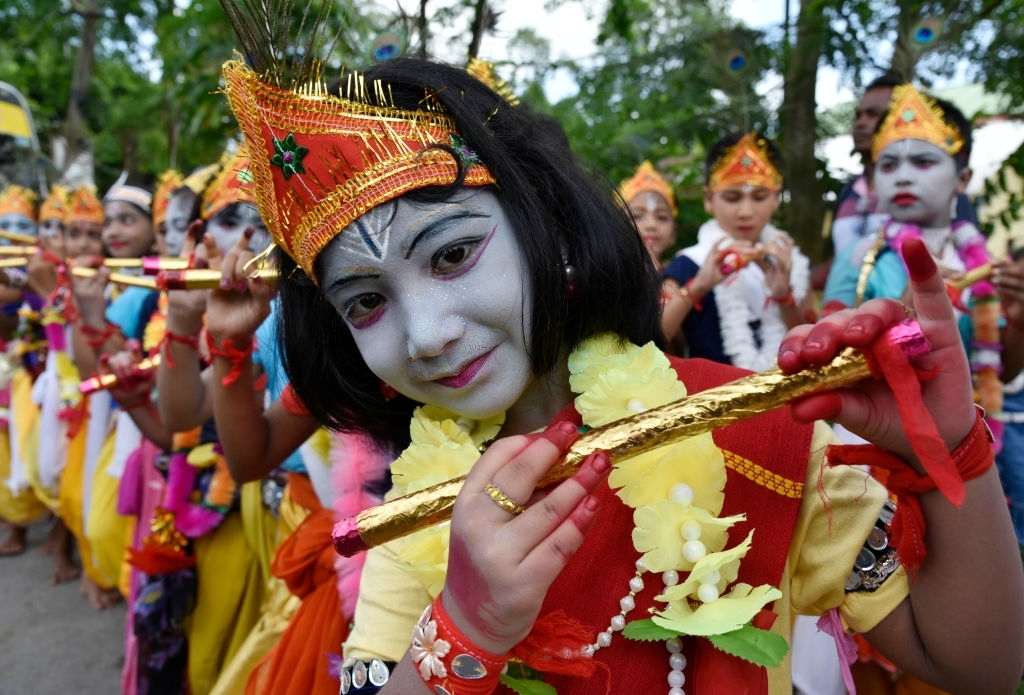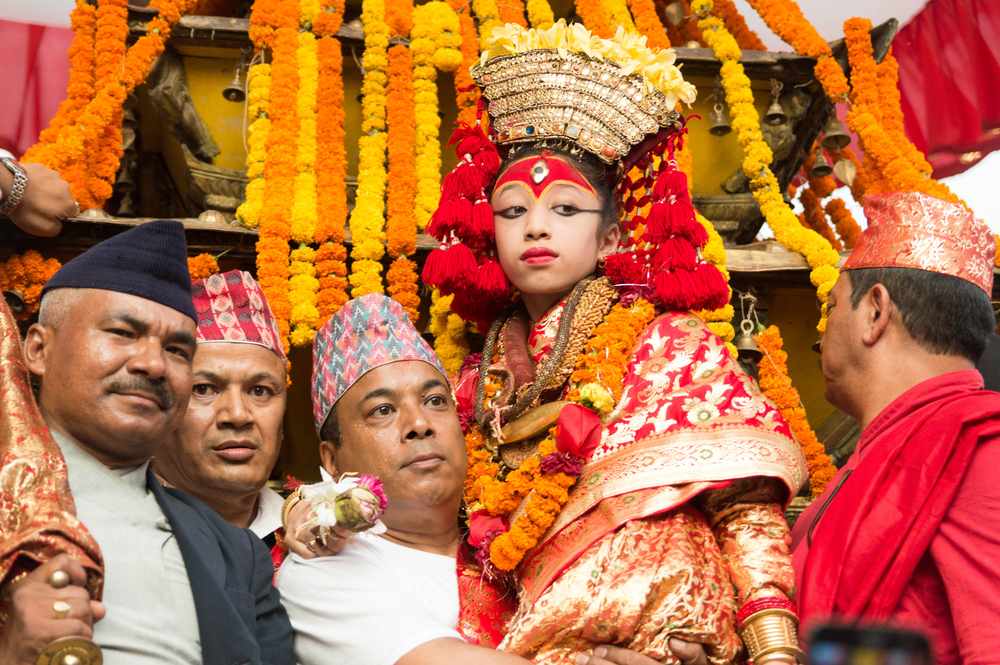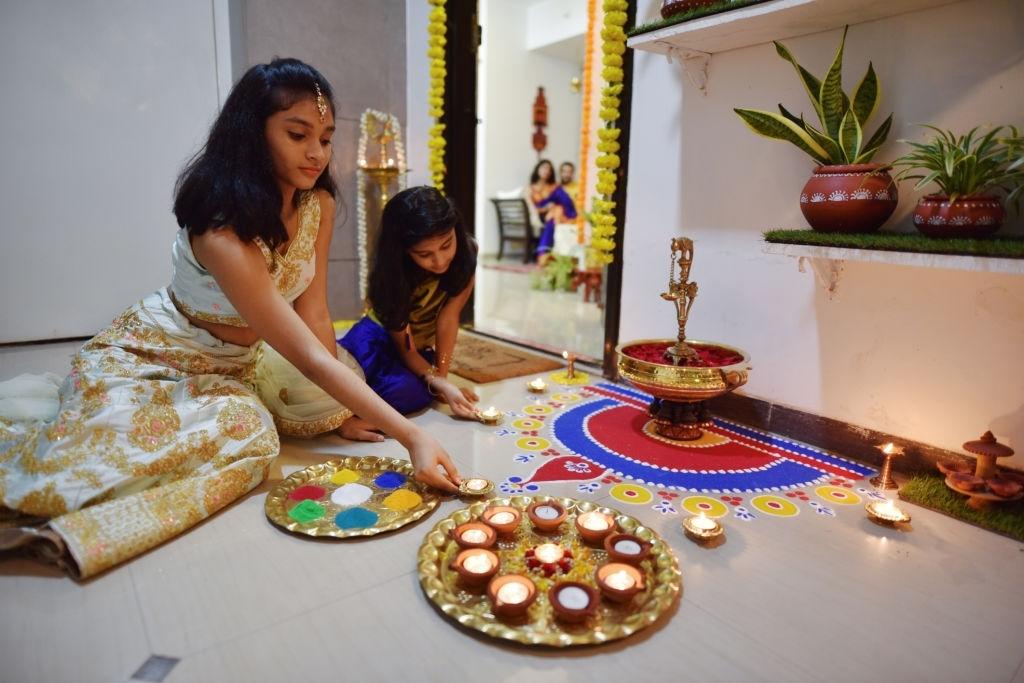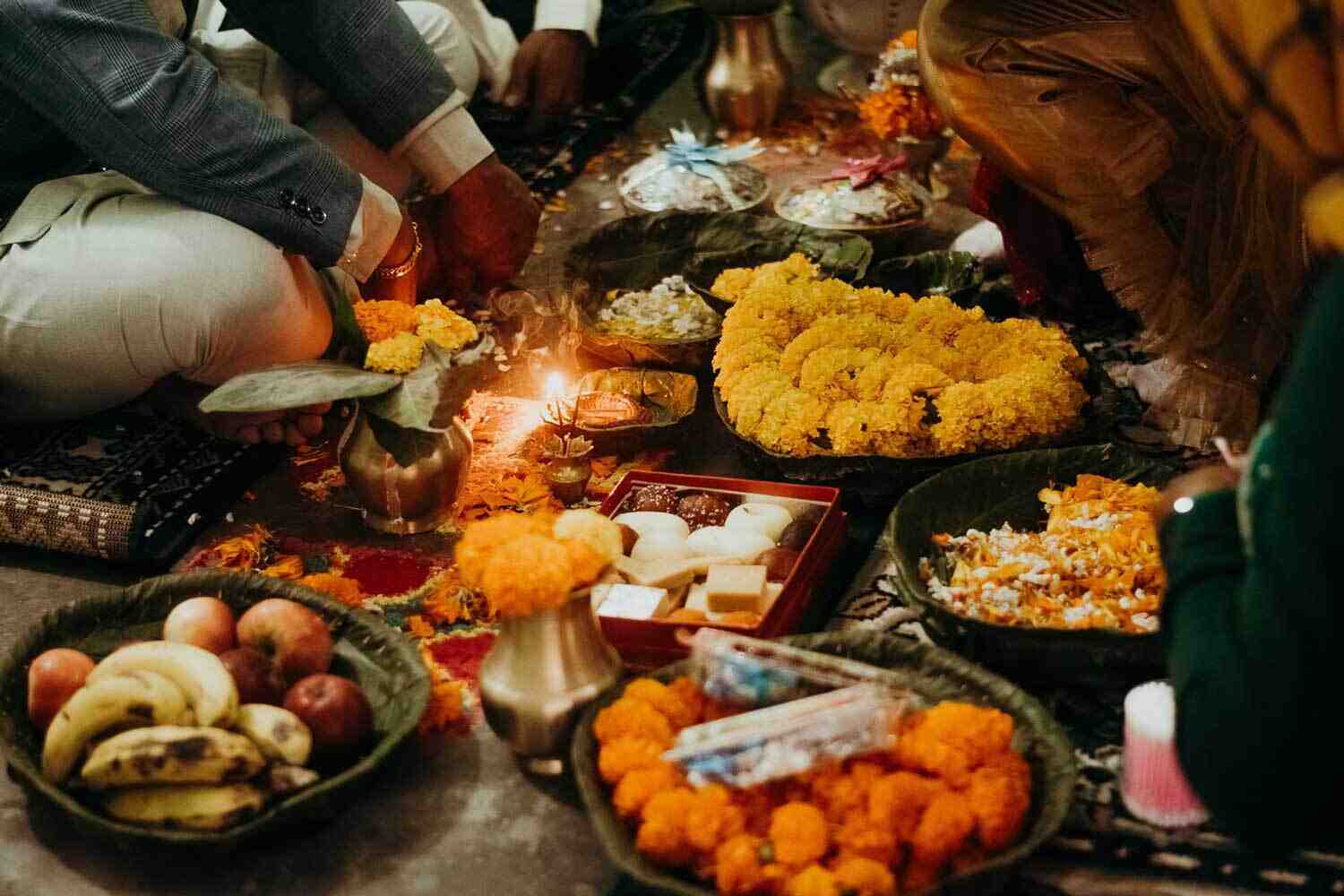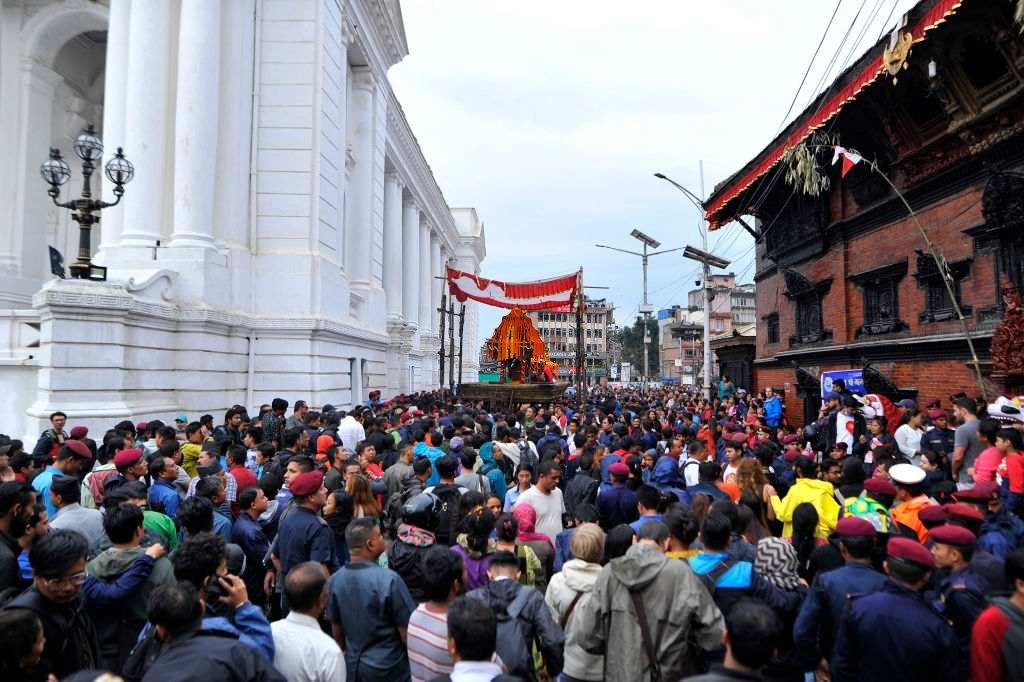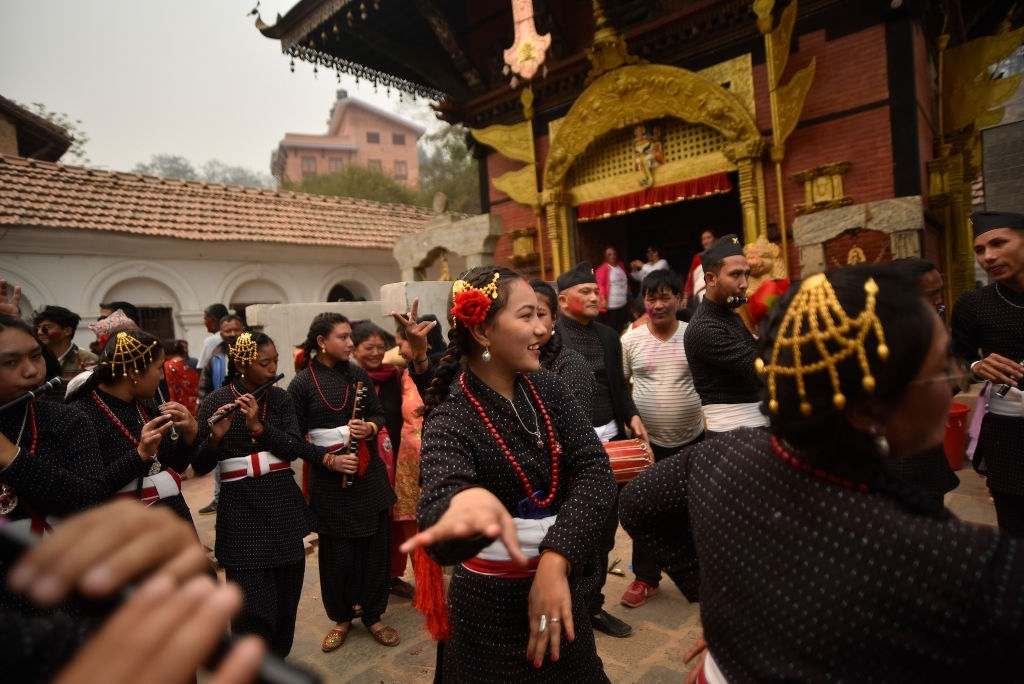Krishna Janmashtami is a Hindu festival to celebrate the birth of Krishna, the eighth avatar of Vishnu. Krishna Janmastami is sometimes simply known as Janmashtami and/or Gokulashtami. The Hindu lunisolar calendar shows that on the eighth day (Ashtami) of the Krishna Paksha (dark fortnight) in Shaaban or in Bhadrapad, which overlap with the August or September of the Gregorian calendar, depending on whether the calendar chooses the New Moon or the Full moon as the last day of the month. It is a holiday that is important, especially in the Hindu Vaishnavism tradition.
The Janmashtami celebrations include dance drama of Krishna's life according to BhagavataPurana (such as Rasa Lila or Krsna Lila), a midnight-time devotional song when Krishna was born, fasting (upavasa), a night vigil (RatriJagaran), and a festival (Mahotsav). It was mainly celebrated in Mathura and Vrindavan, along with significant villages in Manipur, Assam, Bihar, West Bengal, Odisha, Madhya Pradesh, Rajasthan, Gujarat, Maharashtra, Karnataka, Kerala, Tamil Nadu, Andhra Pradesh, and all the other Indian states.
The following is Krishna Janmashtami from the Nandotsav festival, where Nanda Baba gives donations to the community for the celebration of birth. Krishna is the son of Devaki and VasudevaAnakadundubhi and Hindus celebrate his birthday as Krishna Janmastami, especially as the Supreme Personality of the GaudíVaishnavy faith is held. Janmashtami is observed when, at midnight on the eighth day of Bhadrapada month, Krishna is thought to be born according to Hindu legend at Mathura (overlaps with August and 3 September in the Gregorian calendar). In a place of chaos, Krishna is born.
It is a time of rampant persecution, denied freedom, and everywhere evil, and his uncle King Kansa was putting his life at risk. His father, VasudevaAnakadundubhi, took Krishna over the Yamuna to encourage the parents of Gokul named Nanda and Yashoda immediately after Mathura's birth. This legend on Janmashtami is honored by those who keep fast, chant religious love songs for Krishna, and watch in the evening. After the midnight night of Krishna's birth, Krishna's baby figurines are bathed, clothed, and then put into a crib. Then the devotees break up quickly with food and sweets.
Women take little steps away from the doors of their homes and kitchens to their homes, a representation of the journey of Krishna into their homes. By swelling, singing, praying, preparing, and sharing special foods, night watches, and visiting the temples of Krsna or Vishnu the Hindus celebrate Krishna Janmashtami. Major temples in Krishna organize "Purana' and "Bhagavad Gita' recitations. Many localities hold the Rasa Lila or Krishna Lila dance-drama festivals. In the Mathura region, northeastern countries of India like Manipur and Assam, and parts of Rajasthan and Gujarat, the Rasa Lila custom is very prominent. Many amateur artists' teams, encouraged by their local communities, act as they do, and these drama dance performances start a few days before every Krishna Janmashtami.
How is Krishna Janmastami outside Nepal?
Krishna Janmastami is celebrated in cities like the city of Mumbai, Latur, Nagpur, and Pune (popularly known as "Gokulashtami" as in Maharashtra). The day after Krishna Janmashtami, DahiHandi is celebrated every month of August/September. The DahiHandi that is a feature of this festivity, is being broken here. "Earthen pot of yogurt" truly means the name DahiHandi.
According to annual history, youth teams and kids, known as the "Govindas," ride to those hanging pots, climb each other and make a human pyramid and then destroy the pot. These males are encircled by girls, cheering and singing. The spreads are regarded as Prasada (celebratory offering). It's a public show, accepted as a community event. This yearly Hindu ceremony is celebrated by several Indian cities in contemporary times.
Young groups create pathaks from Govinda, which compete with each other, particularly for Janamashtami prize money. These gangs, known as mandalas or handis, go across the region and try to break as many pots each August. The festivities are attended by social celebrities and journalists while corporations support part of the event. The Govinda teams awarded cash and present and the Times of India said that more than 4,000 handis were hung with awards in Mumbai alone in 2014
